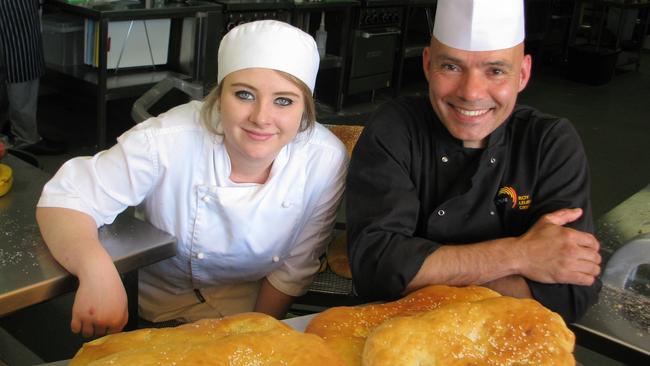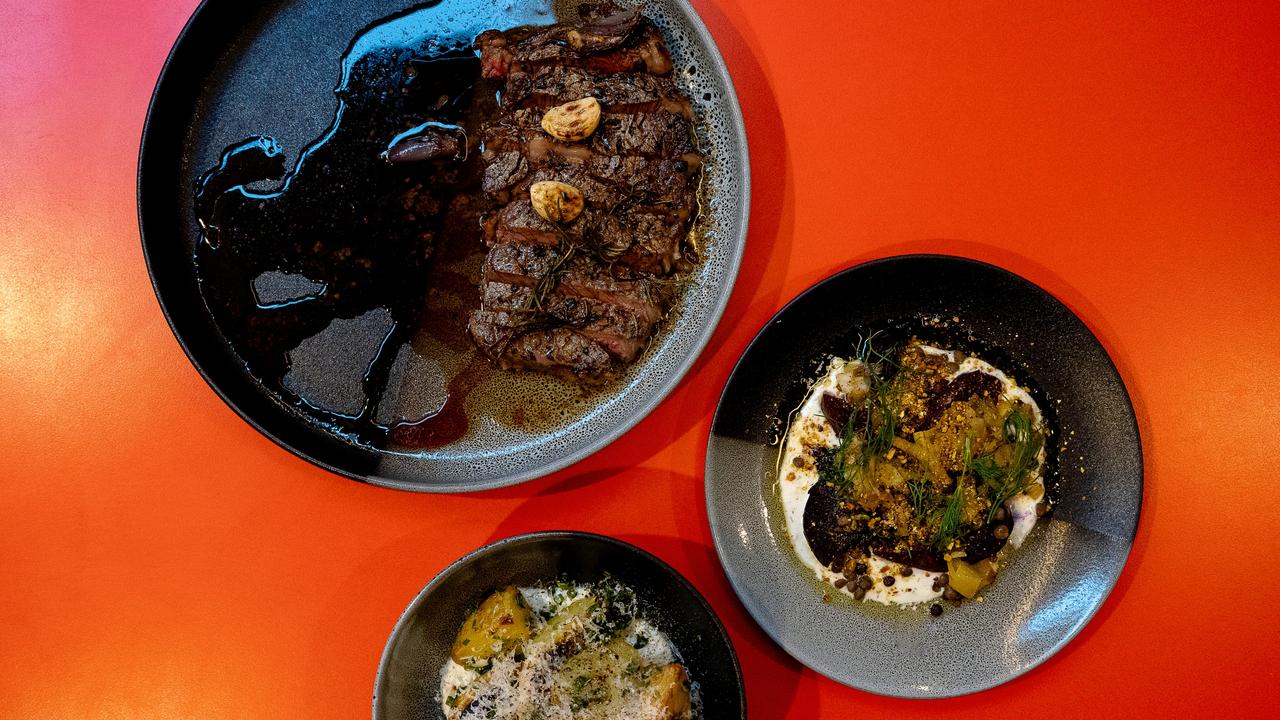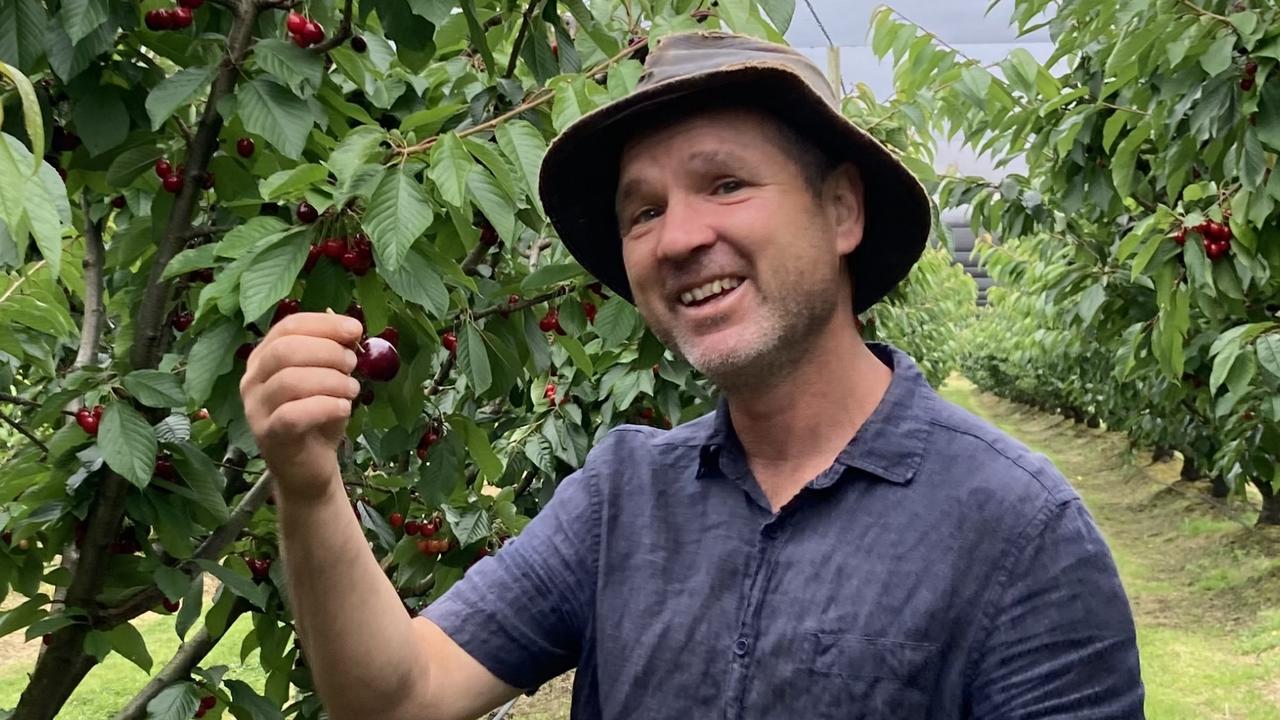Taste: Bread for success
TASTE: The pressure of catering to a disparate crowd to brings out the best in student chefs.

Food and Wine
Don't miss out on the headlines from Food and Wine. Followed categories will be added to My News.
CODIE Harris is having a Marie Curie moment – as when the physicist said: “One never notices what has been done; one can only see what remains to be done.”
Right now, Codie is pouring liquid the consistency of thick cream into a frypan and experimenting with cooking times in an attempt to produce a vegan flatbread.
It is not going well. The disc will not stay as such; it gets too crisp and breaks up. Or, cooked for a lesser time, it is a flaccid, pale and totally lacking in eye appeal.
Codie is 16, a student at Huonville High School doing Certificate 2 in kitchen operations.
This evening a team of 20 high school and TAFE students of which she is a member will present canapes and a three-course dinner to 150 delegates to the Tasmanian Landcare Conference.
The gluten-free option to bread was to have been corn cakes, but they contain eggs and dairy, so for the sake of one vegan gluten-free guest, Codie is wrestling with a mix of cornflour, oil, water, garlic and basil.
Recourse to the supermarket is being canvassed and Codie is downcast. For now, she is completely discounting the tables full of Turkish bread she began making at 6am, all of which are a golden, crusty invitation to eat.
In her frustrated struggles to feed one diner, she has forgotten how well she has catered for the other 136 guests at the dinner.
Roy Leurs teaches the high school students and adult TAFE students in the Huon Valley Trade Training Centre that comprise the team doing the dinner.
Some have started at 6am, some will finish at midnight.
The students are working three shifts, or a split shift with the afternoon off as a welcome to the real world of food service.
Much of the food, such salmon from Huon Aquaculture and cheese from Bruny Island Cheese Co, has been donated and rounded up by Landcare.
But, in some instances, Roy has not known what he is getting until late in the day, and there is not always enough to cover all 150 guests.
So the menu is flexible.
It will begin with canapes, including that salmon made into a mousse, a mushroom and walnut pate, baba ghanoush, and the cheeses served with a firm apple and pear jelly.
Then will come Portuguese style chicken or Portuguese style meatless sausages.
The main course will be big platters of seven different tapas, and no one will notice nor care, if the offering on every platter is not identical.
While 40 per cent of the preparation has been done, on the Saturday the rest will be cooked and transported down the road to Huonville Primary School and plated there for serving.
Roy has designed the menu, done the shopping and ensured the students have the tools to do the job. On the day, his main job is to answer questions.
“This is the way to make it work,” he says, when he breaks off for 15 minutes to talk to me.
“Each student has particular job. If I focus on cooking myself where is the learning point for them?”
By the time we finish talking, he has broken off seven times to cheerfully answer queries.
Back in the kitchen, he tastes one of the 368 meatballs that will go under a spicy tomato sauce on the tapas platter. Also being readied for the oven are three different types of sausages.
Jake Browning is beheading baby octopus ready to be marinated. Chloe Bone is chopping up pineapple for the fruit salad.
But for those who can eat eggs, gluten and dairy, Chris Muhn and Jasmine Lockwood have designed a dessert menu of pannacotta, creme caramel, pavlova roll, mini pavlova and chocolate and lemon sponges.
The students’ reward is credits for work placement.
But Roy does not get his usual Saturday night “relaxing contrast to the stress of teaching” by cooking at the Commercial Hotel in Cygnet.


